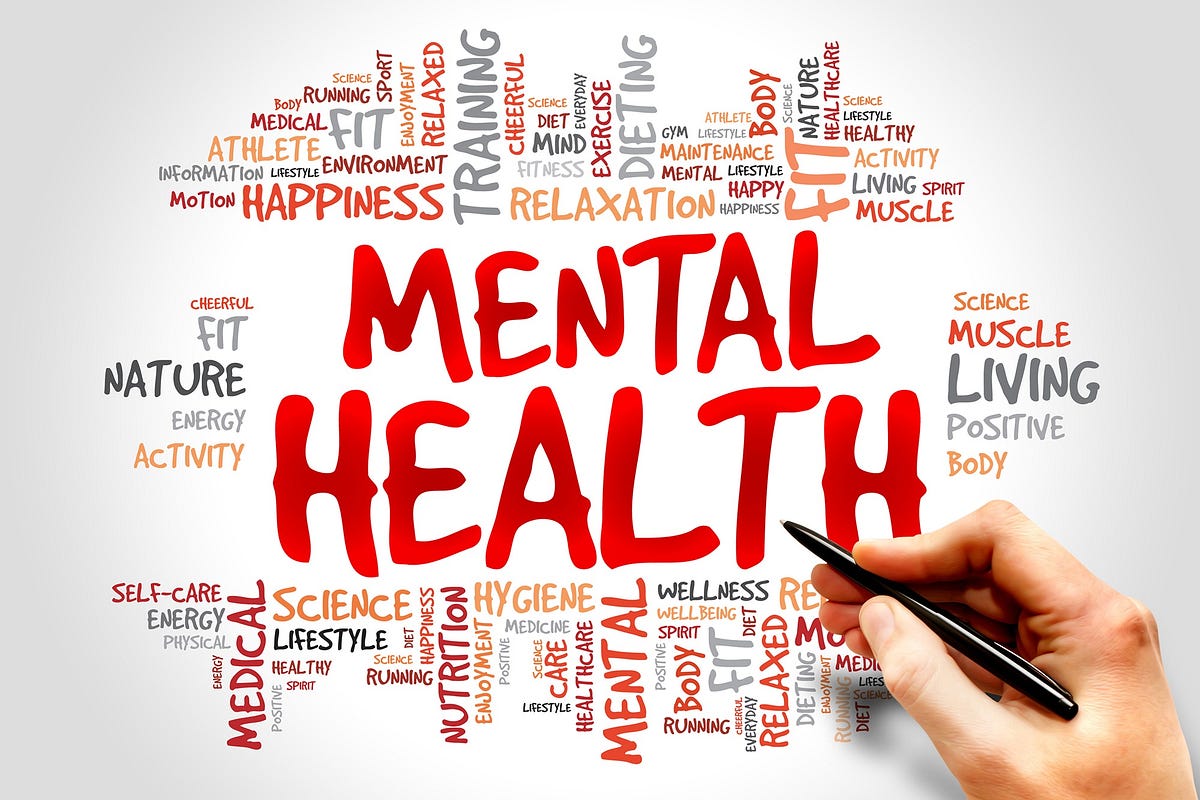Introduction
In today’s digital age, our lives revolve around technology. Smartphones, tablets, and computers are part of our everyday routine. Many people depend on digital devices for work, learning, and socializing. However, constant exposure to digital screens can affect our mental health.
What Is This and That
Before we delve deeper, it is important to clarify some key terms and concepts.
What Are Daily Digital Habits?

Daily Digital Habits are the Regular Routines we follow when using digital devices. These habits are part of our everyday lives and can become automatic. While some habits can be beneficial, excessive or unhealthy digital habits can negatively impact our mental health.
What Are Hidden Dangers?
Hidden Dangers refer to the unexpected or less obvious risks associated with our digital behaviors. These dangers are not always immediately visible but can accumulate over time. They include increased stress, anxiety, reduced concentration, and poor sleep quality. By understanding these hidden dangers, we can take steps to reduce their impact on our lives.
What Is Mental Health in the Digital Age?
Mental Health in the Digital Age means how our emotional and psychological well-being is influenced by technology. Our online interactions, digital content, and constant connectivity play a role in shaping our mental state.
The Impact of Daily Digital Habits on Mental Health

Digital devices have become a major part of our lives. While they offer convenience and connection, they also come with risks that can affect mental health. Here, we explore some of the key impacts.
Increased Stress and Anxiety
Constant notifications and information overload can lead to increased stress levels. The pressure to stay connected and respond immediately may cause anxiety. People often feel overwhelmed by the continuous influx of emails, messages, and updates. Over time, this can lead to chronic stress, which affects both mental and physical health.
When your mind is bombarded with digital information, it can be hard to relax. The need to be always available creates a cycle of stress. This constant state of alertness may prevent you from enjoying quiet moments and lead to burnout.
Poor Sleep Quality
Many of us use digital devices before bedtime. Exposure to blue light from screens can interfere with the production of melatonin, the hormone that regulates sleep. This makes it harder to fall asleep and can lead to sleep deprivation. Poor sleep quality not only affects your energy levels but also has a negative impact on your mood and cognitive abilities.
Getting enough sleep is vital for mental well-being. When sleep is disrupted, you may experience irritability, difficulty concentrating, and even depression. Establishing a routine that limits screen time before bed can improve your sleep and overall mental health.
Social Isolation and Loneliness
While digital platforms can connect people across distances, they can also lead to feelings of isolation. Online interactions sometimes replace face-to-face conversations, leaving you feeling disconnected from those around you. Social media can create unrealistic expectations and comparisons, leading to loneliness and dissatisfaction.
Even though you might have many online friends, the quality of these interactions may not match in-person relationships. This can lead to a sense of loneliness and a lack of genuine support. Balancing online and offline interactions is essential for maintaining healthy social connections.
Negative Self-Image and Low Self-Esteem
Social media often presents idealized versions of life. Constant exposure to curated images and posts can lead to negative self-image and low self-esteem. When you compare your everyday life to the highlights of others, you may feel inadequate or insecure.
Practical Tips to Reduce Digital Stress

You do not have to give up technology to protect your mental health. Simple changes in your daily routine can make a big difference. Here are some easy tips to help you reduce digital stress and create a healthier balance.
Limit Screen Time
Set aside specific times during the day when you use digital devices. Avoid using your phone or computer during meals or before bedtime. By limiting screen time, you allow your mind to rest and recharge.
Try using apps that track your screen time and set limits for yourself. This can help you become more aware of your habits and gradually reduce the time spent online.
Create Tech-Free Zones
Designate areas in your home as tech-free zones. For example, keep the bedroom free of digital devices to promote better sleep. These zones can be places where you relax and unwind without interruptions.
Having a space where you disconnect from technology can help reduce stress and improve your overall mental well-being.
Practice Digital Detox
A digital detox involves taking a break from digital devices for a set period. This could be a few hours, a day, or even a weekend. Use this time to engage in activities that do not involve screens, such as reading a book, going for a walk, or spending time with friends and family.
A digital detox can help reset your mind and break the cycle of constant digital stimulation. It gives you a chance to reflect on your habits and make positive changes.
Engage in Offline Activities
Find hobbies and activities that do not require technology. This could include exercising, cooking, gardening, or exploring nature. Offline activities can provide a much-needed break from digital stress and improve your mood.
Practice Mindfulness and Meditation

Mindfulness and meditation can help you manage stress and improve your focus. Even a few minutes a day can make a big difference. Try simple meditation techniques or mindfulness exercises that help you stay present.
Mindfulness can help you become more aware of your digital habits. It encourages you to be intentional about when and how you use technology, which can reduce stress and improve mental clarity.
Stay Connected in Person
While online communication is convenient, face-to-face interactions are invaluable. Social connections are crucial for mental health, and real-life interactions can provide support and comfort that digital communication cannot.
Make plans for social activities that do not rely on digital devices. This will help you build stronger relationships and reduce feelings of isolation.
A Relevant Table: Hidden Dangers of Daily Digital Habits
| Issue | Description | Key Impact |
|---|---|---|
| Increased Stress | Constant notifications and information overload create a state of alertness. | Higher anxiety levels, burnout, reduced overall well-being. |
| Poor Sleep Quality | Blue light exposure from screens interferes with sleep hormones. | Difficulty falling asleep, fatigue, mood disturbances. |
| Reduced Concentration | Frequent digital interruptions break focus and lower productivity. | Decreased attention span, increased frustration. |
| Social Isolation | Excessive online interactions can replace meaningful in-person relationships. | Feelings of loneliness, disconnection, and isolation. |
| Negative Self-Image | Social media often promotes unrealistic standards of beauty and success. | Lower self-esteem, feelings of inadequacy. |
The Long-Term Effects of Digital Overload
While short-term stress is noticeable, the long-term effects of excessive digital use can be even more harmful. Over time, poor digital habits may lead to chronic mental health issues. These can include long-term anxiety, depression, and even cognitive decline.
Real-Life Examples of Healthy Digital Habits

Many people have successfully changed their daily digital routines. Their stories offer hope and practical ideas. For example, one individual decided to limit social media use to 30 minutes a day. They noticed an immediate reduction in stress and an improvement in mood. Another person began practicing digital detox weekends, where they completely unplugged from their devices. This break helped them reconnect with family and friends and find new hobbies.
The Importance of Digital Well-Being
Digital well-being is a term that describes the balance between digital life and personal health. It is about making sure that technology serves you and not the other way around. By focusing on digital well-being, you can enjoy the benefits of modern technology while minimizing its negative impacts.
Final Touches: Bringing It All Together
Daily Digital Habits play a significant role in our mental health. The hidden dangers of constant connectivity include stress, poor sleep, reduced concentration, social isolation, and negative self-image. By understanding these risks and making small adjustments, you can protect your mental well-being.
Conclusion
In summary, Daily Digital Habits have hidden dangers that can affect Mental Health. This article explained how constant screen time, social media pressure, and digital overload can lead to stress, poor sleep, reduced focus, social isolation, and low self-esteem. Simple strategies like limiting screen time, setting tech-free zones, and practicing digital detoxes can improve well-being. Embrace a balanced digital lifestyle to protect your mental health and enhance your overall quality of life.




